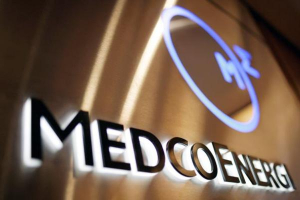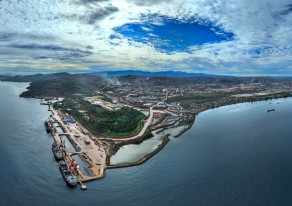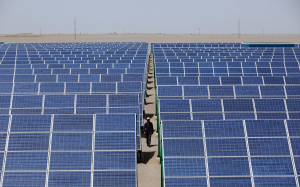Pros and cons, restraint mounted on birth of Danantara
Pros and cons, as well as restraint have mounted over the commitment of Indonesia’s newly established Daya Anagata Nusantara (Danantara) Investment Management Agency on transparency, financial sustainability, and freedom of political influence.
State-owned Mining Industry Holding MIND ID is confident that the establishment of Danantara is a major milestone in strengthening investment in downstreaming and industrialization in Indonesia.
MIND ID President Director Hendi Prio Santoso said that the establishment of Danantara is part of the state-owned enterprises (SOEs) transformation, ensuring optimal asset utilization to maximize economic impact.
With a strategic investment approach, Danantara is expected to accelerate industrial competitiveness, drive the success of downstreaming programs, and reinforce Indonesia’s economic sovereignty in the future.
Hendi said MIND ID is committed to integrating mineral and coal reserve management with downstreaming, ensuring improved company performance while contributing to national revenue.
“With a strong commitment to downstreaming and industrialization, we believe Danantara’s presence will deliver real economic sovereignty for Indonesia in the future,” he said as quoted in a statement on Monday, February 24, 2025.
Meanwhile, former President Director of the Jakarta Stock Exchange (BEJ), Hasan Zein Mahmud, has raised concerns over the business feasibility and governance of Danantara.
He said that he was skeptical about Danantara’s financial sustainability and lack of external oversight, highlighting potential risks similar to those faced by Indonesia Investment Authority (INA).
"I am unable to analyze the business and economic feasibility of Danantara’s presence, let alone its viability. I do not even fully understand the rationale behind its existence," Hasan spoke to Indonesia Business Post on Sunday, February 23, 2025. "Looking at the case of INA, I have yet to see any significant achievements."
He cited that Danantara is expected to redirect dividends from SOEs into its own revenues, rather than directly contributing them to the State budget (APBN). The Indonesian government anticipates Rp 200 trillion (approx. US$12.8 billion) in dividends from SOEs for 2024. However, with Danantara in place, these funds will flow into Danantara’s coffers rather than the national budget.
"Danantara may ease the burden on the state budget for financing strategic projects, but for someone like me who thinks in simple terms, Danantara will only be successful if the dividends it eventually contributes to the APBN exceed those it collects from former SOEs," Hasan said. "Frankly, I do not believe this will be achieved within the next two to three years."
He highlighted governance risks, particularly the consolidation of control within Danantara as traditionally, Indonesia’s Ministry of Finance acted as the controlling owner of SOEs, while the Ministry of SOEs oversaw their operations. However, with Danantara’s establishment, both roles are merged under one entity, eliminating external supervision.
"Now, these two powers are fully concentrated within Danantara. No external oversight is permitted, aside from political supervision by the House of Representatives (DPR). Governance entirely depends on the company’s internal mechanisms," Hasan cautioned. "This is concerning, especially since Danantara is expected to manage assets several times the scale of the national budget."
Influential figures and lack of accountability
Citing social media discussions, Hasan suggested that Danantara is effectively controlled by Indonesia’s most influential political figures, making any external oversight ineffective.
"Within Danantara, we will see the most powerful figures in the country today," Hasan remarked. "Any external watchdogs will find themselves powerless in the face of these dominant figures."
Hasan notably referred to four key power players behind Danantara: President Prabowo Subianto, President Joko Widodo (and family), SOEs Minister Erick Thohir, and Coordinating Minister for Maritime and Investment Affairs Luhut Binsar Pandjaitan (and family).
"Calling them 'figures' is more accurate than referring to institutions, as it better represents their level of skill and influence," he said.
Transparency
Danantara’s establishment has sparked debates among economists, financial analysts, and governance watchdogs, many of whom share Hasan’s concerns over transparency, financial sustainability, and political influence.
While the government argues that Danantara will optimize SOEs’ assets and attract foreign investment, critics warn that without clear oversight mechanisms, the entity risks becoming a black box of state finances.
As the Indonesian government moves forward with Danantara’s operations, questions remain about whether it will deliver on its promises or reinforce concerns of unchecked power and financial opacity.
Already have an account? Sign In
-
Start reading
Freemium
-
Monthly Subscription
30% OFF$26.03
$37.19/MonthCancel anytime
This offer is open to all new subscribers!
Subscribe now -
Yearly Subscription
33% OFF$228.13
$340.5/YearCancel anytime
This offer is open to all new subscribers!
Subscribe now






